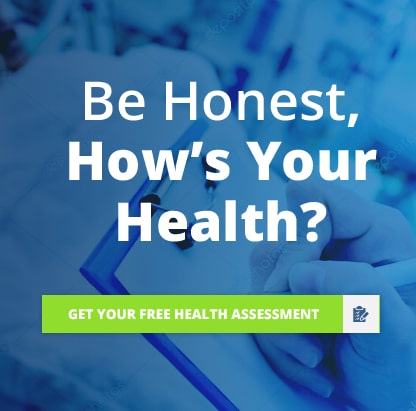At this point, it may be an almost universal experience: our smartphone’s notifications go off, or we get approached by “that coworker”, and we immediately feel an impending sense of dread and annoyance. This is usually accompanied by a slight increase in our heart rate as our entire body prepares for extra work, a new obstacle, or a battle of wills.
These days, most of us don’t need to fight for our lives when encountering a rival. Instead, we are subjected to slight, prolonged hazards that make us feel like we need to get ready for something — even if no actual fight or flight happens afterwards.
It’s obvious this is bad for our mental health. But how much is it also damaging our physical health?
What Is Chronic Stress?
According to the American Psychological Association, chronic stress refers to a continuous sensation of being overwhelmed or under pressure for a prolonged time.
Chronic stress can be relentless, and it is also profoundly unnatural. Throughout most of history, humans have had to deal with abrupt threats to our lives or health. As technology made our lives more predictable, we still had to face acute challenges from time to time: a season of poor harvest, a family conflict, or even traumatic loss. In modern life, we are also plagued by the need to solve something for years.
Health Impact of Chronic Stress
Our bodies secrete a hormone known as cortisol to deal with crisis periods, which lends us a bit of extra endurance. It accomplishes this by:
- Regulating our sugar levels
- Altering the salt and water balance in our bodies
- Improving mid-term memory
- Lowering the basal metabolic rate
- Tweaking the natural fluctuations of female reproductive hormones
Cortisol rushes can be a powerful tool for survival. They allow us to power through a period of famine or impending danger. But there’s a limit to that capacity. When cortisol levels remain high for the long term, their effects will no longer be a boon.
Chronic Stress, Cortisol, and Your Cardiovascular System
In particular, there are two ways in which cortisol can affect your blood pressure (and, in turn, your heart health).
First, we need to look at its effects on blood sugar levels. When blood sugar remains high for a prolonged period, it will increase levels of systemic inflammation. Over time, slightly inflamed arteries will begin to harden, causing your heart to pump harder to take blood around the body.
Second, cortisol can alter how your kidneys deal with water, sodium, and mineral levels. To prevent dehydration, it will “order” your kidneys to let more sodium pass through cell membranes. In turn, this will increase your blood volume, which will put an extra strain on your blood vessels. Once again, it will force your heart to work harder to compensate for this.
What does this mean for your heart health?
In short: a higher risk of developing hypertension or cardiovascular events, such as strokes or heart attacks.
In September 2021, a group of researchers from the American Heart Association published a new observational study that tried to put a number on these effects. They studied 412 middle-aged and elderly adults for 13 years. All participants had no diagnosed heart conditions at the start of the study. They monitored their self-reported stress levels and the levels of cortisol, adrenaline, and dopamine in their urine.
They found that participants with high cortisol levels in their urine had a much higher risk (of up to 90%) of developing high blood pressure. They were also more likely to be hospitalized due to a hypertensive crisis. However, those with high adrenaline or dopamine levels did not.
Realistic Tactics for Managing Chronic Stress
It’s likely that simply reading about the effects of chronic stress will add an extra concern to your daily list. And yet, we can’t merely tell you “don’t worry about it”. We can’t will away stress – and after two years of a pandemic, natural disasters, and uncertain job markets, stress and concern may feel unavoidable.
Below are a few simple, actionable tactics that can help you provide your body and mind with some necessary respite.
Schedule “wellness checkpoints”
Most of the best anti-stress techniques require little money but some time investment. Try to plan these pleasurable activities in advance and at regular intervals:
- Coffee dates with friends
- Group yoga classes
- Dancing nights
- Journaling or painting evenings
- Therapy
Allow yourself to be imperfect
Sometimes, we unwittingly add stress to our plates by trying to serve too many masters at once — and by assuming they are all equally unforgiving. Remind yourself that the house doesn’t need to be spotless all the time, that B-students also graduate, and that many deadlines are flexible.
Address tasks one day at a time
To-do lists can help us stay organized, but they can also be a terrible reminder of an activity-packed future. However, you don’t need to deal with all these tasks at once, and you may not even need to think about next week’s obligations today.
If you notice that looking at your to-do list makes you restless or overwhelmed, make a point to focus on the day’s actions alone.
Take your workouts outdoors
All physical activity is good for health – but fun exercise in a green space can boost its benefits threefold. Our brains are wired to feel more at home when surrounded by nature. In addition, exposure to beautiful landscapes (parks, the beach, or even nearby hills) can counteract stress and help battle depression.
Label your emotions
It’s harder to fight something you cannot describe. Chronic stress produces a generalized “ill at ease” feeling that is hard to define, making possible solutions less obvious.
Practice labeling techniques to recognize how you feel and what is causing it. Name each emotion and prepare a “recipe” to drive it away.
Learn to recognize your tipping point
When lack of sleep or overly loaded schedules start to become too much, our bodies will usually tell us. It’s a matter of learning to listen to its signals. These can include:
- Sugar or junk food cravings
- Joint pain
- Mood swings
- The urge for specific coping methods, such as alcohol or fast drives
- Restless dreams
- Poor digestion
Keep an eye out for them. When they appear, take a break.
Conclusion
Chronic stress and anxiety don’t happen in a vacuum. In many ways, they are caused by a world that operates under new, unfamiliar rules that our bodies are just not prepared to handle. This can harm both your mental and physical health.
The answer here is not to plan our lives to ”hide” from stress. Instead, allow for more flexibility in approaching tasks and judging yourself. Leave open slots to recover and address problems one at a time. Your heart and mind will thank you for it!
Think differently about your health with Society of Wellness. Get your free health assessment here.




